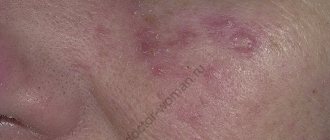Are you familiar with one of the most important problems of modern pharmacy?
Do you think that this is the lack of drugs that can defeat the most severe diseases? Actually this is not true. One of the main problems is the resistance of microorganisms to existing drugs. This means that some drugs that were previously effective may no longer work over time as pathogens learn to survive exposure to the drugs. The issue of antibiotic resistance is especially acute now, as confirmed by clinical practice and numerous studies. According to WHO, every year millions of people experience infections that are resistant to one or more antibiotics. The same thing happens with other groups of drugs. One solution to this problem is to search for other universal drugs that would be able to avoid the emergence of resistance to them. Antiviral immunity is provided by interferons, a group of protein molecules.
- What are interferons (IFNs)
- History of discovery
- Interferon therapy: yesterday, today and tomorrow
- Types and effects on the body
- Preparations containing IFN
- Preparations based on IFN for the prevention of ARVI
- Complex immunomodulatory drug VIFERON
Alpha interferon: indications and contraindications
This drug is used: 1. Parenterally for: - hepatitis B and C: - hairy cell leukemia; - genital warts; - multiple myeloma; — mycosis fungoides; - non-Hodgkin's lymphomas; - Kaposi's sarcoma in patients with AIDS; - renal carcinoma; - malignant melanoma. 2. Rectally for: - treatment of chronic and acute viral hepatitis. 3. Intranasally for: - treatment and prevention of acute respiratory viral infections; - treatment and prevention of influenza.
The drug is contraindicated in the following cases:
- severe heart disease; — epilepsy and disorders of the central nervous system; — various dysfunctions of the kidneys and liver; — chronic hepatitis and liver cirrhosis; — autoimmune hepatitis; — autoimmune thyroiditis and thyroid diseases; - treatment with immunosuppressants.
What are interferons
Interferons (IFNs) are an independent group of cytokines, secreted proteins that play a critical role in the functioning of the immune system of humans and all vertebrates.
They are responsible for antiviral activity, that is, they directly protect the body from the expression of foreign genetic material. IFNs take part in the regulation of a large number of immune processes, which consist of increasing the activity of natural killer cells and stimulating phagocytosis - the process of capturing and absorbing microorganisms and foreign particles, and also support the inhibition of proliferation - the process of reproduction of damaged cells. All this is aimed at the most effective protection against diseases. Scientists were able to prove that the course of the disease and the speed of recovery largely depend on the ability of the interferon system to respond as quickly as possible to the introduction of the pathogen.
History of the discovery of interferon
The scientific world first started talking about IFN more than 60 years ago, when English virologists Alik Isaacs and Jean Lindenmann published materials in one of the journals in which they spoke in detail about the discovery and study of the IFN protein. Legend has it that they came up with the name “interferon” for these proteins themselves, and at first they considered it humorous.
It is also worth noting that long before the work of these virologists, other scientists tried to study the phenomenon of interference, which consists in the mutual suppression of viruses. Then the talk was that the body, infected with viruses of one type, for some reason became immune to viruses of another type. Scientists tried to find an answer to this question, but until the research of Isaac and Lindenmann, the nature of this phenomenon remained shrouded in mystery.
And in the middle of the 20th century, interferon was discovered and it was found that the formation of IFN is one of the very first reactions of the innate immune system to alarm signals associated with the penetration of viral particles into the body. Currently, scientists adhere to the version that the IFN system in vertebrates, including fish, was formed more than 500 million years ago.
In 1959, the Scientific Committee on Interferon was created, where research immediately began on this powerful natural remedy in the fight against viral diseases. The list of the main tasks of this community included the development of the most economically feasible and efficient methods for the production of IFN, as well as its purification.
Side effects of alpha interferon
The most severe side effects are observed with parenteral administration of the drug. These are: headaches, fever, weakness, myalgia. Side effects from the cardiovascular system: arrhythmia, arterial hypertension. From the central nervous system: impaired consciousness, drowsiness, ataxia. From the digestive system: nausea and vomiting, loss of appetite, diarrhea, possible impairment of liver function. Various dermatological reactions are possible: skin tightness, skin rash, erythema. All this, as a rule, manifests itself against the background of general weakness.
Interferon-based drugs for the prevention of ARVI
In most countries of the northern hemisphere, ARVI, that is, acute respiratory viral infections, is one of the most widespread infectious diseases. Despite the popularization of vaccination aimed at protecting against influenza, it cannot fully solve the problem of ARVI. The thing is that vaccinated people develop antibodies only to those strains of the influenza virus that are part of the vaccine. But viruses constantly mutate, so you may be offered a vaccine against a certain number of influenza strains, but you will get sick from completely different strains. Scientists cannot create vaccines as quickly as mutation occurs. It is also necessary to take into account the fact that vaccines are not used in the midst of an epidemic.
Preventive protection against ARVI must be comprehensive, including nonspecific prophylaxis, which is not aimed at specific strains, but acts against the majority of ARVI known to science. It is necessary to use antiviral drugs that have a significant impact on preventing the occurrence of diseases and on the favorable outcome of the developed disease.
Alpha interferon: instructions for use
This drug is used as a solution for inhalation or instillation into the nose. Before use, the ampoule is shaken and opened. Then add water to it up to the mark on the ampoule (2 ml.). Then the whole thing is gently shaken until the dry powder is completely dissolved. For treatment, the drug begins to be used at the first symptoms of the disease. Interferon is instilled into each nasal passage, 5 drops at least 5 times a day, every 1-2 hours. The course of treatment should be 2-3 days. For preventive purposes, it is recommended to instill the solution 5 drops into each nostril twice with a 6-hour interval. The drug is also recommended for use as eye drops for viral infections. Interferon can be used for children in the same proportions. But there are other recommendations. A particularly effective method of using Interferon for children is inhalation. To do this, you need to dilute 3 ampoules of the drug in 10 milliliters of warm water. The inhalation procedure should be carried out no more than twice a day. We recommend using an electrically heated inhaler. Inhalation of the drug can be carried out to a child, both through the mouth and through the nose. It is not recommended to use Interferon for pregnant women and during breastfeeding (lactation). The drug should also be used very carefully in patients who have had a myocardial infarction, myelodepression, or thrombocytopenia. It is necessary to use Interferon with great caution together with sedatives, sleeping pills and opioid analgesics.
Drops
Interferon drops are effective in the treatment of viral diseases such as ARVI, conjunctivitis, keratitis, etc. Manufacturers offer nasal and eye drops. Interferon drops contain a small amount of active ingredient - up to 10,000 IU.
The most well-known drug for the eyes is ophthalmoferon. This is a white solution with a faint yellowish tint. An additional component in the product is diphenhydramine. Thanks to him, it is possible to relieve allergic manifestations.
Nasal interferon is sold in the form of various drugs. Gripferon is considered effective in the treatment of acute respiratory viral infections and influenza. This medication may be in the form of drops or a nasal spray. It is believed that interferon spray is more convenient to use. You can prepare interferon nasal drops yourself using a ready-made solution in ampoules, which must be dissolved in a certain amount of saline.
Interferon: price and sale
Buying this drug today is not difficult. It is sold in almost every pharmacy or specialized department of any supermarket. Interferon, the price of which is not very high and is almost the same everywhere, is quite popular. But nevertheless, we want to warn you not to purchase this drug with your own hands and when purchasing it, require a certificate of product conformity. This way you will protect yourself from counterfeits that are now flooding pharmaceutical companies. Reviews about Interferon are generally favorable, it is noted to be highly effective in the treatment and prevention of infectious diseases, but at the same time, many reviews indicate that people are concerned about the side effects that occur when using this drug. One thing is clear: you need to know your body very well before using any medicinal drug.
Solution
Interferon in ampoules for injection is produced in different dosages under different names: reaferon, wellferon, betaferon, etc. The products are available in syringe tubes, ready for use, which simplifies the use of the drug. Dosages in products – 500 – 10,000,000 IU.
You can also purchase interferon in powder form in glass ampoules. This is a lyophilisate that is produced using a special technology. It is dissolved in physiological solution for further use for intramuscular and subcutaneous injections. In this way you can fight any infectious lesions of the body.
An alternative way to use the powder is inhalation using a special drug - a nebulizer. It creates a cloud consisting of miniature particles. Such inhalations are considered effective in the treatment of respiratory diseases.
Interferon and Transfer Factor
(very important note) The cost of a package of Interferon is from 80 to 120 rubles. A package is enough for 2-3 days of therapy, and in acute chronic diseases its use extends for years, and the result is not guaranteed and, on the contrary, it threatens very serious complications. A full course for this type of disease requires up to 30 packages (!), which requires a cost of about 3,500 rubles , long months of use and dealing with side effects. Exactly the same functions are performed by Transfer Factor, which contains 90 capsules in a package and costs about 2,000 rubles. , but at the same time its effect on our body is deeper and more dramatic - it puts in order damaged human DNA, i.e. removes the cause of the disease, and does not treat its consequences, like Interferon. Among other things, TF has no contraindications and does not cause any side effects; it is impossible to overdose and has no age restrictions. But if you still decide to take only Interferon, then we advise you to take it with TF in combination, because When taken this way, TF neutralizes all the side effects of Interferon. You will find everything about the use of TF here.
Suppositories
The most famous are suppositories containing interferon called viferon. The amount of active substance in them is 150,000 IU - 3,000,000 IU. Suppositories are made from confectionery fat and cocoa butter. Additional components are ascorbic acid, polysorbate, tocopherol acetate.
The suppositories have a convenient shape and are intended for rectal or vaginal use.
Indications for their topical use are various diseases of the urogenital tract. Suppositories also have a good systemic effect. This is ensured by the rich circulatory network of the rectum, which guarantees rapid entry of the active substance into the blood. Therefore, interferon suppositories can be used in the complex treatment of various viral infections.
The rectal area has a fairly rich vascular network, due to which the drug quickly enters the bloodstream. Suppositories containing this substance can be used in both children and adults to treat viral and bacterial infections as part of complex therapy. This type of drug is especially convenient for children who may be afraid of intramuscular injections.
How do human interferons work?
Increased production of interferons begins when a cell is infected with a virus. Note that interferon does not act directly on the virus. First of all, interferon is a signaling molecule that affects neighboring cells, triggering processes in them that interfere with the replication of the virus. Under the influence of interferons, specific enzymes are synthesized in cells that interfere with the assembly of viral particles. Accordingly, the virus cannot further multiply, infecting our body. The second main property of interferons is to stimulate the immune system. In particular, some types of interferons present antigenic (foreign) agents to special T-helper cells of the immune system, which further down the chain pass it on to the next links of the immune pathway, ultimately destroying the pathogen5.
The antiviral properties of interferons have aroused great interest among researchers from the point of view of the treatment of a number of diseases. And over time, thanks to various medical and technological capabilities, it was possible to obtain medications that contain interferon.
Are medications containing interferons suitable for children?
With acute respiratory viral infections and other viral diseases, children often experience a deficiency of interferons. For this reason, an additional source of IFN is needed to speed up recovery. Interferon, coming from outside, helps to mobilize the immune system of children and protects them from the development of complications.
Frequently ill children (FIC) require special attention, and this group includes not only preschoolers and schoolchildren who suffer from flu and colds more than 4-6 times a year, but also those who are ill for a long time - more than two weeks after each infection with ARVI. In such children, the production of natural IFN is reduced by no less than 15-20% compared to their peers. Medicines containing IFN not only fight viral diseases, but also enhance protective functions and help resist the disease.
For PBD, pediatricians recommend the use of long-term interferon therapy. Using this approach, it is possible to form a special IFN depot, due to which the cells in the body become resistant to the effects of infections.
Are all “pherons” the same?
As already mentioned, some drug manufacturers produce drugs whose names contain the ending “...feron,” which can mislead the consumer and convince him that the drug contains interferons. In fact, these drugs may be homeopathic and do not contain IFN in any form. Homeopathy refers to alternative forms of medicine that involve the use of highly diluted drugs that are believed to cause disease-like symptoms in healthy people. Proponents of homeopathy contrast the concept of treatment according to the principle “like cures like” with the principles of rational pharmacotherapy.
Currently, homeopathic medicines may not undergo a full cycle of checks before being entered into the RLS (register of medicines), since a simplified registration form applies to them.
In 2021, scientists of the Russian Academy of Sciences (RAS) recognized homeopathy as a pseudoscience and came to the conclusion that its use in medicine “contradicts the main goals of domestic healthcare and should be met with organized government opposition.”
If you do not want to make a mistake, then before purchasing the medicine at the pharmacy, you should read the instructions and make sure that IFN is present in the composition. Trust reliable brands and pharmaceutical companies that have been known on the market for many years and have already won the trust of consumers.





